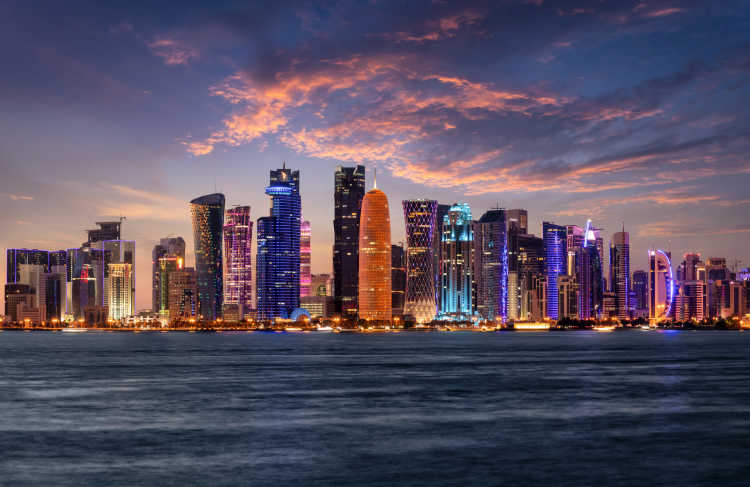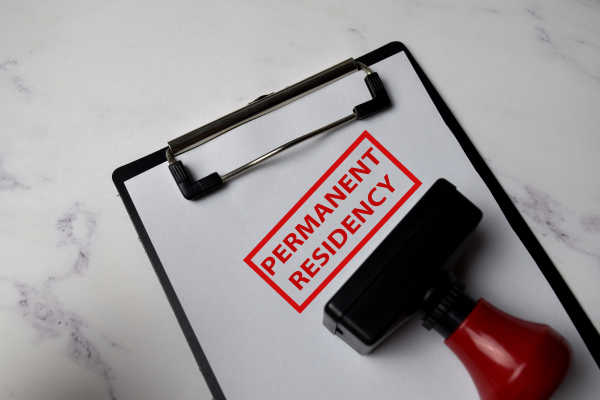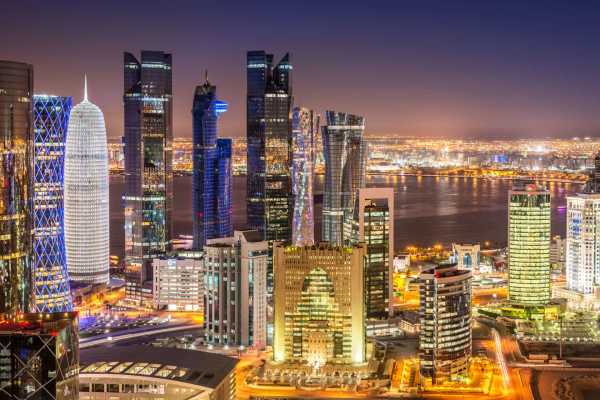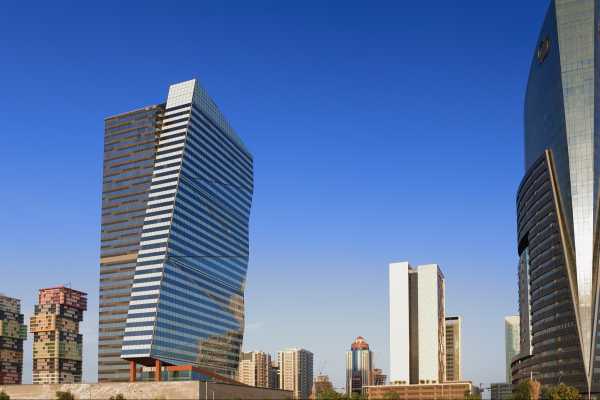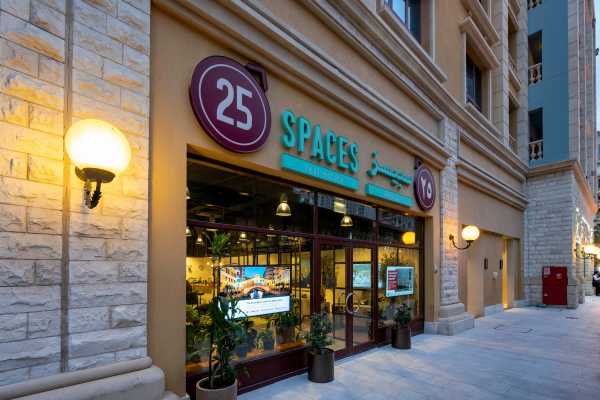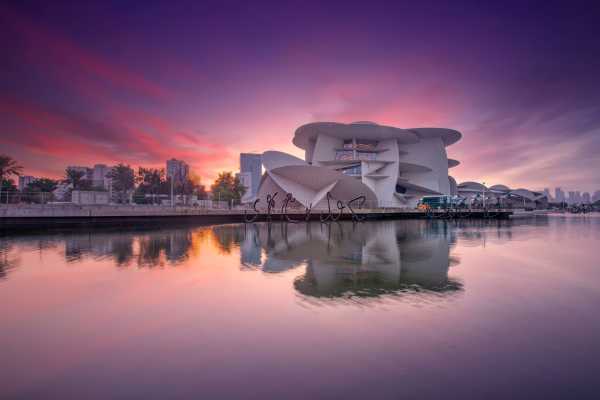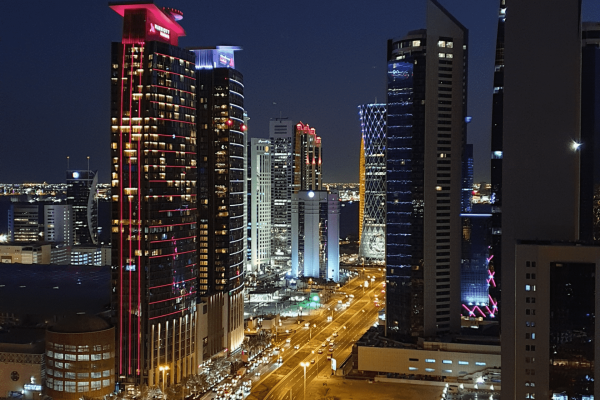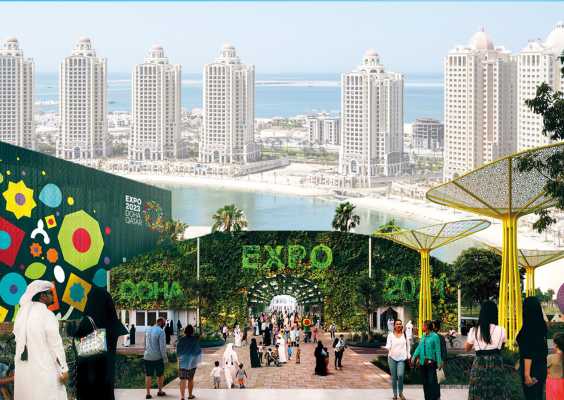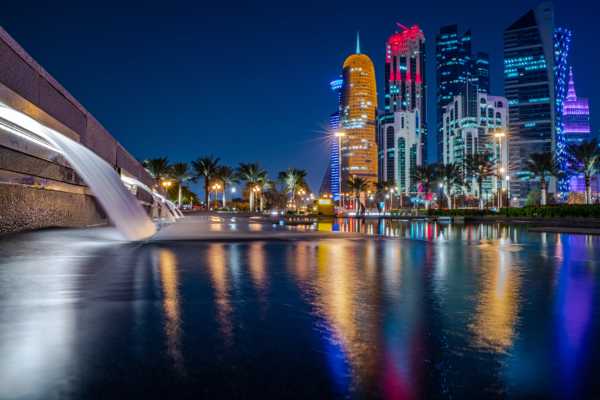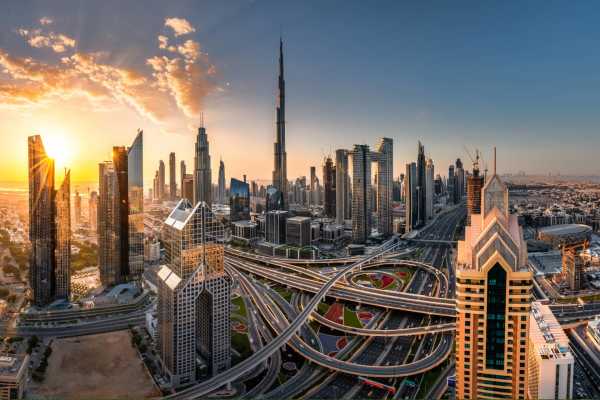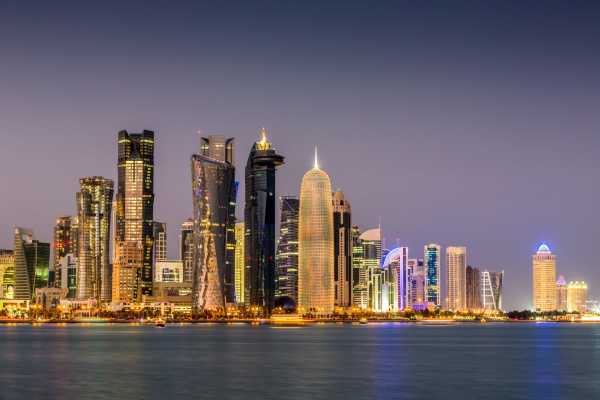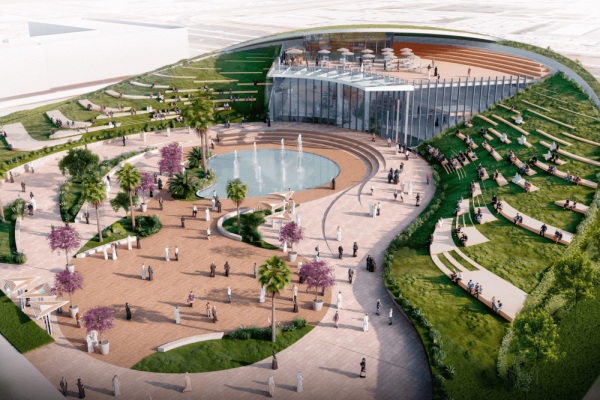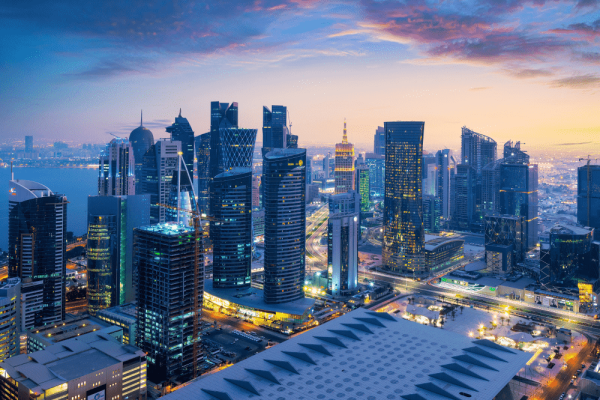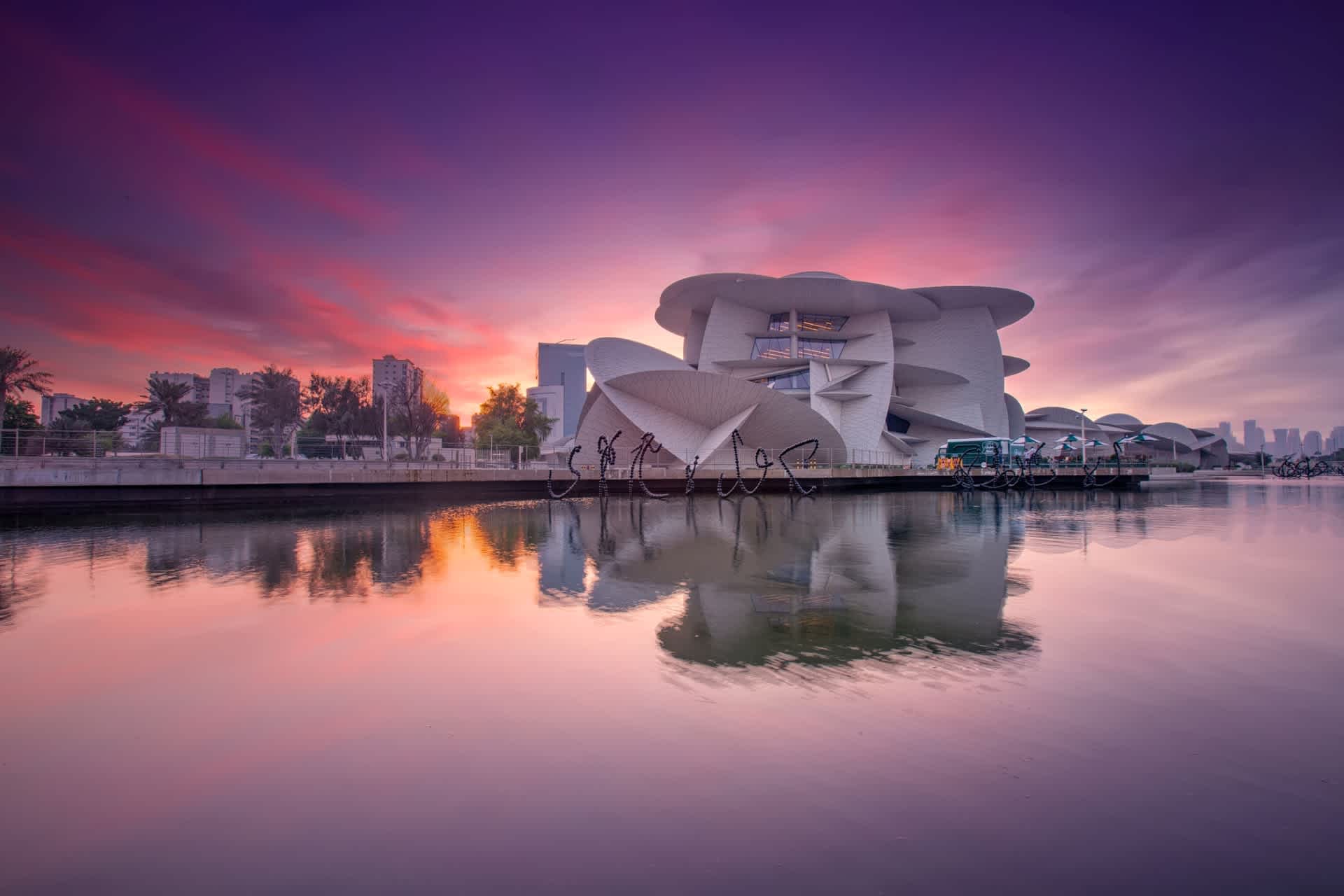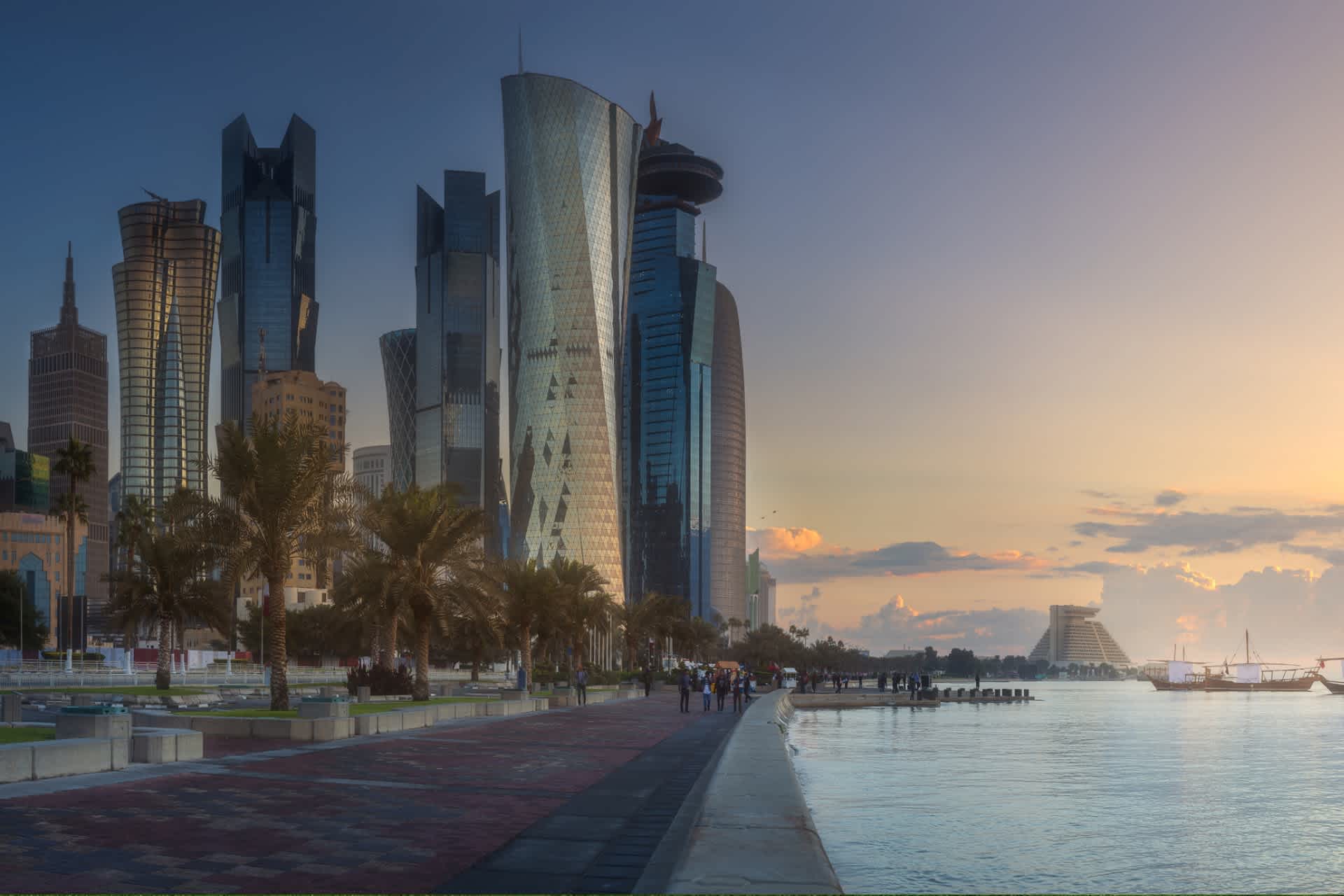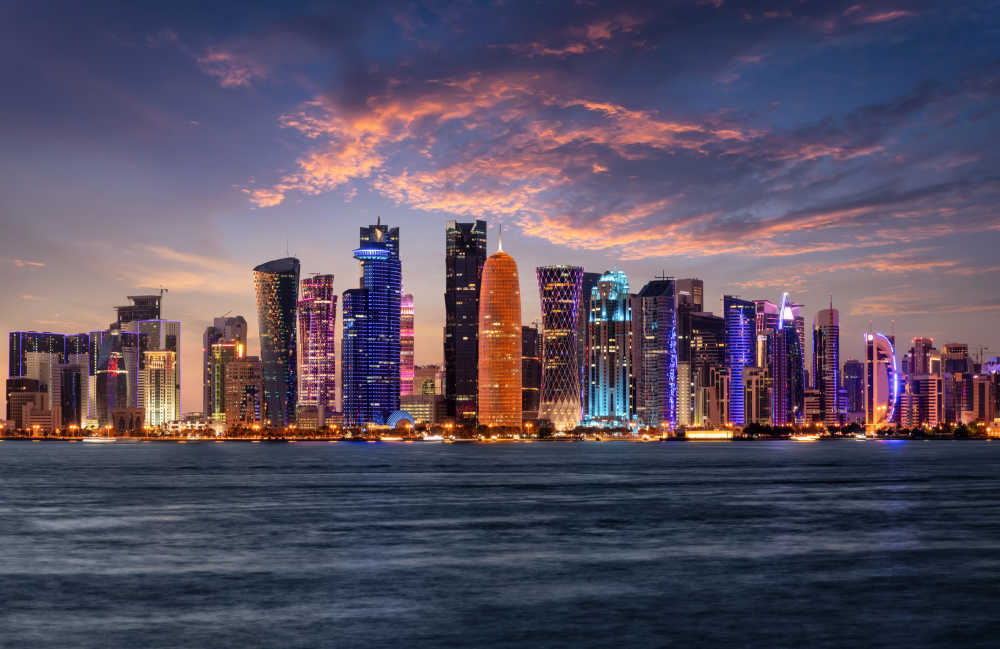
Since opening up to foreign real estate investors in the early 2000s, Qatar has rapidly developed into a true world class destination. It's one of the most cosmopolitan countries in the world — home to over 100 nationalities. Of the 2.8 million people who reside here, only 15% are Qatari nationals.
While Qatar is a relatively small peninsula (160 kilometers long and about 55 to 90 kilometers wide), it's not hard to see why Qatar is a great place to invest in real estate. National income from oil and gas production has allowed the country to extensively develop its cities. The country has become so affluent that property taxes are essentially non-existent.
But, while Qatar enjoys the economic benefits of its natural resources, it also has an eye on the future. It recognizes that a carbon free future could be just around the corner and is investing its massive resources on new industries (e.g. financial services, hospitality, real estate). And just recently, in 2020, the country further expanded the areas where expats can buy property. For potential investors such as yourself, this is a timely opportunity to get a head start in the next phase of Qatar's development.
Here's what you can expect from this real estate investment guide:
What you need to know before investing in Qatari real estate
Buying property in Qatar as an expatriate
What it's like to live in Qatar
Find the best properties for sale in Qatar with 25 Spaces Real Estate
Properties for sale in Qatar
What you need to know before investing in Qatari real estate
Favorable new regulations for foreigners on property ownership
Towards the end of 2020, Qatar announced new rules that will incentivize more foreigners to invest in real estate. According to Cabinet Resolution 28, non-Qataris can now invest in more freehold and leasehold properties in the country. Doing so will grant temporary or permanent residency status, depending on the investment value. The new rule applies to both commercial properties in mall and residential compounds.
There are now nine areas where foreigners can own freehold properties, namely
West Bay Lagoon
Lusail
Pearl
Al Khor resort
Al Dafna (Administrative area 60)
Al Dafna (Administrative area 61)
Onaiza (Administrative area 63)
Al Kharaej
Jabal Thuaileb
Additionally, there are 16 locations where leasehold properties can be purchased by expats:
Msheireb (Area 13)
Fareej Abdulaziz (Area 14)
Al Doha Al Jadeeda (Area 15)
Al Ghanim Alateeq (Area 16)
Al Rifaa and Old Al Hitmi (Area 17)
As Salatah (Area 18)
Bin Mahmoud (Area 22)
Bin Mahmoud (Area 23)
Rawdat Al Khail (Area 24)
Al Mansoura and Fereej Bin Durham (Area 25)
Al Najma (Area 26)
Umm Ghuwailina (Area 27)
Al Khulaifat (Area 28)
Al Sadd (Area 38)
Al Mirqab Al Jadeed and Fereej Al Nasr (Area 39)
Doha International Airport (Area 48)
Expats who purchase property that's worth 730,000 Qatari Riyal (QR) or approximately USD$200,000 will earn a temporary resident permit. Please visit our In the News section of our website for further details regarding this.
For those who invest QR 3.65 million or more (about USD$ 1 million), they'll gain permanent residency. A host of benefits come with this, including education and health care perks, as well as exclusive investment opportunities in certain economic sectors.
Qatar's is one of the richest countries in the world
As a top-producer of oil and natural gas, Qatar has an impressive GDP per capita of over USD$ 62,000. The country is the largest producer and exporter of liquified natural gas (LNG). In 2019, it exported 107.1 billion cubic meters of LNG. Overall, natural gas provides Qatar approximately USD$ 35 billion in annual revenues.
Before the discovery of oil and gas reserves in the 1940s, Qatar heavily relied on fishing, pearl diving, and the trading of horses, precious linens, and other goods. While fossil fuels are currently the main drivers of its economy, the country is looking ahead and laying the groundwork for a future that's free from oil and gas.
The goal is to gradually wean itself from oil and gas dependence while maintaining economic heft. The country is heavily investing in new services, real estate and public infrastructure, sustainable food supply chains, and disruptive technologies, among others. Potential investors can position themselves early on to tap into this highly promising market.
Qatar is brimming with smart, culture-rich cities and communities
Here's a sneak peek of the real estate landscape in Qatar:
About 20 minutes away from Doha is Lusail, a master-planned smart city that is redefining urban living standards. Lusail encompasses 38 square kilometers, with gorgeous waterfront views in the most sought-after neighborhoods. The city's 19 districts are expected to accommodate nearly half a million residents, professionals, and tourists. An assortment of services are facilitated digitally, from education and health to energy distribution.
The artificial island of Pearl-Qatar has some of the most iconic images of Qatar. Its distinctive shape is meant to resemble a string of pearls — calling back to its history of pearl diving and trading. As one of the largest and most ambitious real estate developments in the Middle East, Pearl-Qatar boasts 10 Mediterranean-inspired precincts and hundreds of leisure areas and dining dining destinations.
West Bay is a stunning waterfront area within Doha that contains the prominent districts of Al Dafna, Al Qassar, Onaiza, and West Bay Lagoon (official name Leqtaifiya or Al Qutaifiya). An eclectic mix of restaurants, upscale retail establishments, beautiful parks, and museums await you in this part of Doha.
A one-of-a-kind venue for the FIFA World Cup in 2022
What's more, Qatar will host the FIFA World Cup in 2022 A couple of aspects make the 22nd iteration of this prestigious international competition special.
For one, this will be the first time that the World Cup will be held in a Middle Eastern country. It's a testament to Qatar's global appeal and drive to become one of the best countries to live and work in. This will be the last instance that the World Cup will be hosted in a single country before returning to a multi-country format in 2026. And so, the last time it will be viable to watch most of the games live without having to extensively travel.
All games will be played within Doha or near the city (about 50 km away at most). This makes it one of the most compact World Cup events in history. Four stadiums will act as venues for the games — one in Lusail, one in Al Khor, and two in Doha.
Buying property in Qatar as an expatriate
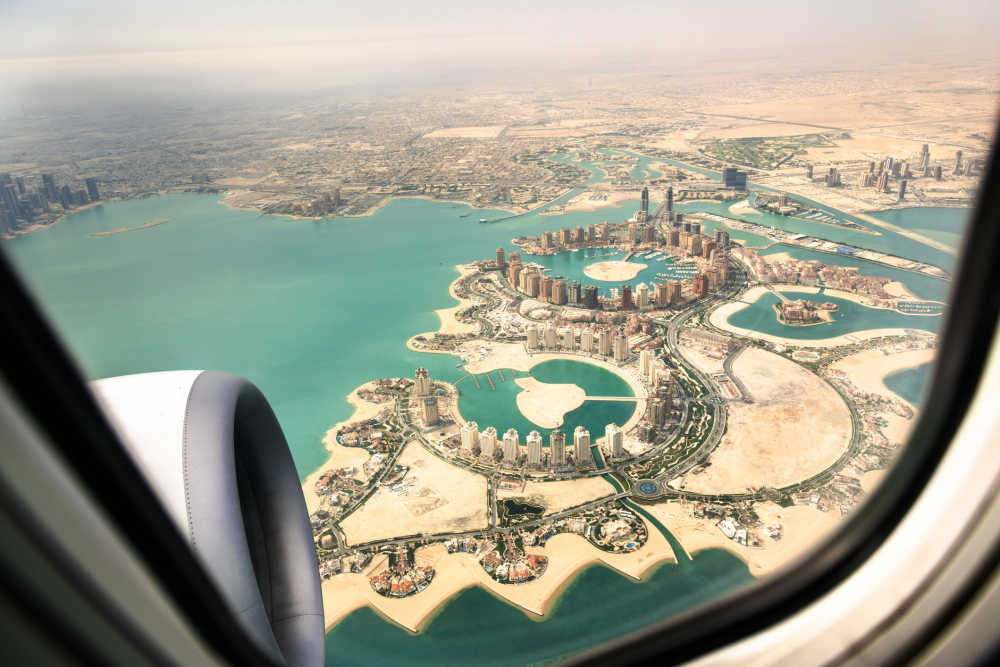
Average real estate prices vary depending on the specific location you're considering. For example, in Pearl-Qatar the price per square meter ranges from QR 12,000 to 25,000 (about USD$ 3,200 to 6,800). Real estate prices in Al Sadd run from QR 7,500 to 8,500 (about USD$ 2,000 to 2,300) per square meter.
As an expat, you can buy a freehold or leasehold property through a mortgage. The Qatar Central Bank has several regulations when it comes to mortgage lending to expats, such as:
Mortgage terms cannot exceed 20 years. At the maximum, expats must be 65 years old at the time of loan maturity.
The total loan amount must be worth 70% of the property value at most. Each bank will set a maximum loan amount (ranges from QR 3 to 4 million depending on the bank and loan type).
Expats must make a 30% down payment.
Expat borrowers are only allowed to spend 50% of their monthly income towards mortgage payments.
What are the essential mortgage documents?
These are the required documents for salaried expats interested in buying freehold properties:
Salary certificate addressed to the concerned bank
A six month bank statement, if salary is being transferred from a different bank
Liability letter addressed to the concerned bank, if loan is transferred from a different bank
Completed bank application form
Copy of ID and passport
Quotation from the developer or copy of title deed and property maps, if available
Down payment receipt
Security cheques
Aside from the 4th to 8th requirement mentioned above, the following are the additional requirements for expats who are self-employed:
Audited financial statements of the business for the two most recent years
Copy of commercial registration
12 months business statement if the account is managed by a separate bank
A six month personal bank statement, if the account is with a different bank
When it comes to purchasing leasehold properties, the requirements are no different from the ones listed above — except for the following instances:
For salaried and self-employed expats, a title deed and property map must be provided.
If the transaction is a resale, self-employed expats must provide some banks (e.g. Doha Bank) a preliminary agreement between seller and buyer.
Expats who opt to buy leasehold properties benefit from a 99-year lease period. Upon expiry, you have the option to renew the lease of the residence for another 99 years.
Which banks can finance your mortgage in Qatar?
Expats can work with a few international banks like HSBC. However, financing from foreign-based banks is limited. You'll more likely be approaching local banks like Doha Bank, Qatar National Bank, and Commercial Bank of Qatar. Do your research and make the necessary inquiries if you're unsure if a particular bank will finance your property purchase in Qatar.
There are also a few mortgage types you can choose from, depending on the bank and property location. For instance, green mortgages offered by Doha Bank have comparatively low rates for homes that are duly certified as energy efficient. There are also certain developers that will only offer one choice of lender to interested buyers. Find out which mortgage types and lenders will be the best fit for your investment strategy.
Should you buy off-plan or work with a real estate agency?
It's possible to approach a developer and purchase property directly from them. This is called off-plan buying, which can be a lucrative investment if you know your way around Qatar's real estate rules and guidelines. You can even buy property that has yet to be constructed at marked-down prices. The advantage here is the payment plan the developer may offer you on a 4 - 5 year payment plan as an average.
But while there may be potential discounts and savings on houses and apartments, unforeseen issues can pop-up at any point in the process. Hidden or undisclosed developer fees can arise. Frequent construction delays can derail your plans for the property. In addition, it can be difficult to navigate the regulations on mortgages for expats —especially if it's your first time buying property in Qatar. Ultimately, you may end up spending more time and money in complying with hidden fees, technical requirements, and unfamiliar laws.
The hassle-free approach is to work with a Qatari real estate company that has proven credentials in serving expat investors. Although working with agents means commissions would come into play here, you'll quickly realize these fees are well worth it. With a real estate partner, you'll receive step-by-step guidance from knowledgeable and service-oriented agents. More importantly, you'll never have to worry about keeping track of all the requirements and deadlines of your property purchase in Qatar.
How long does it take to complete property transactions in Qatar?
Once you've settled on a purchase contract with the seller, it takes about a month or less to complete the property purchase. From there, the next step is to register your property with the Real Estate Registration and Authentication Department, which is part of Qatar's Ministry of Justice. It takes approximately 10 to 15 business days to complete the property registration process.
Expats who complete all the property ownership steps will automatically gain either temporary or permanent residency. Residency benefits can also be extended to immediate family members of the property owner who are eligible.
What it's like to live in Qatar
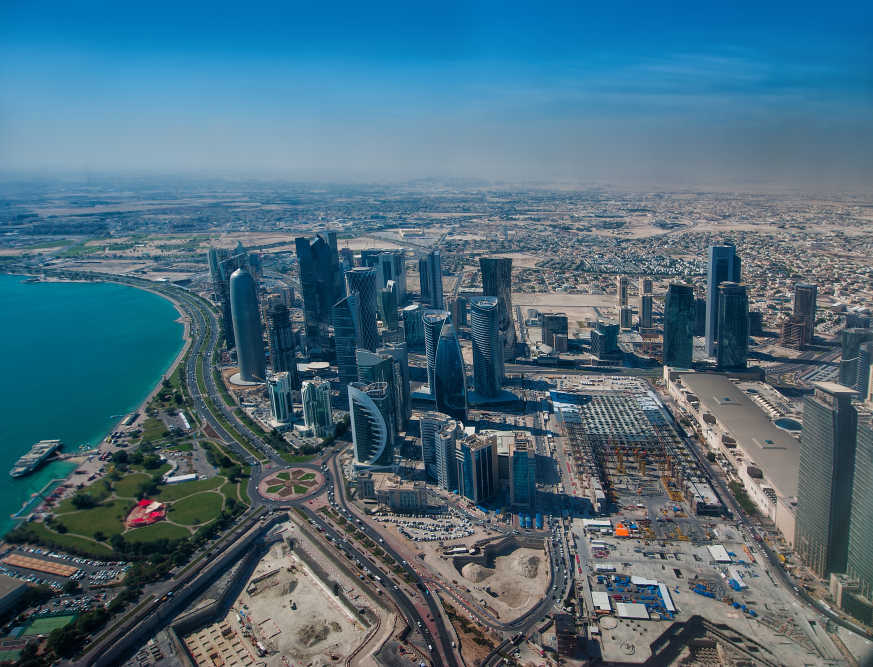
Weather
Qatar has a dry and subtropical climate. Temperatures can get extremely hot, especially during the months of May to October. It can go as high as 43°C (109°F) or more during this time.
During March, April, and November hot temperatures are more favorable. Cooler weather starts settling in December and lasts until February. Temperature levels can dip to 14°C (57°F) during January, which is usually the coolest month. Due to Qatar's fairly flat landscape, there is not much weather variation throughout its different regions.
Things to do
Adventure and luxury await you here in Qatar. Whether it's a rugged journey into the desert, an educational tour around the city, or an exploration of its culinary delights, there are many ways to acquaint yourself with this country's unique culture and feel right at home.
Discover lasting traditions revolving around the desert
Tourists and locals keep Qatar's desert camping tradition alive during Al Enna, the winter camping season. You can experience what it's like to sleep in elaborate Bedouin-style tents and keep warm beside a fire pit while enjoying Qatar's finest delicacies.
Must-visit: Go see the Khor Al Adaid or the Inland Sea, a natural wonder that's been designated as a UNESCO heritage site. This remarkable area where the sea seeps into the desert showcases one of the most unique ecosystems in the world.
Get into water sports and activities
Surrounded by the Arabian Sea, Qatar boasts of a number of water sports and activities along its 560+ kilometer coastline. Get your scuba gear and explore shipwrecks and beautiful reefs in the Arabian Gulf. Go kayaking around the coastal city of Al Khor and discover the Al Thakira mangroves.
Retail therapy, the Qatari way
Qatar is famous for its world-class malls and the premium shopping experience that is in store for people from all walks of life. Check out the following shopping spots:
For the ultimate luxury experience in shopping, dining, and entertainment, drop by Al Hazm (Qatari phrase which translates to "higher ground").
Mall of Qatar has over 500 family-friendly attractions and unique shops. Grab something delicious to eat, go bowling, or take the kids to an indoor rock climbing facility — take your pick!
For a bit of a historical appeal, you can also explore Qatar's traditional street markets or souqs. Here you'll find rare Middle Eastern products and items, whether it's spices, perfumes, clothing, or accessories.
Taste the flavors of Qatar
One of the best ways to truly appreciate a foreign culture is to sample their food. Qatar's cuisine is a mixture of various styles of cooking — taking inspiration from places like Lebanon and India or entire regions like North Africa.
If you enjoy bistro dining and masterful home-style cooking, pay a visit to Al Jasra Traditional Food in Souq Waqif.
For a more upmarket dining experience, you can't go wrong withJiwan Qatar. Jiwan presents Qatari cuisine in a new, exciting way. Offering a lighter, refined, reimagined menu that shines a light on local produce. Familiar dishes rooted in Qatar’s past have been evolved with a modern twist that takes them forward to the future. The seasonal menu, which changes to offer fresh local ingredients, reflects Alain Ducasse’s philosophy: to offer cuisine that vibrates to the rhythms of nature. Jiwan is located at the National Museum of Doha.
Frequently Asked Questions
1. Can foreigners buy property in qatar?
Yes, foreigners are allowed to buy property in Qatar. Expats who wish to invest in property in Qatar can take advantage of the opportunities available in the country. While certain restrictions and requirements must be met before purchasing property, such as obtaining approval from the Ministry of Justice, non-Qataris can buy property in designated areas like The Pearl-Island, West Bay Lagoon, and Al Khor Resort Project. However, we recommend seeking the guidance of a qualified real estate agent with experience in Qatar's property laws to ensure a smooth and legal transaction.
2. Can I get Qatar residency by buying property?
Buying property in Qatar can lead to residency through the 'Qatar Residence Permit for Property Owners' scheme. Eligibility requirements include owning a property valued at a minimum of QR 730,000. Residency permits are valid for a maximum of five years, and can be renewed. However, residency does not grant citizenship or the right to work in Qatar. This scheme is an excellent opportunity for foreign property owners seeking long-term residency in this dynamic Middle Eastern country.
3. Where can expats buy property in qatar?
Expats who are interested in purchasing a property in Qatar should be aware that there are assigned zones where expats can own property. Some of these zones are The Pearl-Island, West Bay Lagoon, Lusail City, and Al Khor. The Pearl-Island is a popular destination for expats due to its luxurious waterfront properties and high-end amenities. West Bay Lagoon is another area known for its upscale villas and apartments. Lusail City is one of the most popular projects for locals and expats alike due to its modern infrastructure and sustainable living. Each zone has its unique characteristics and offerings, so it is important to do your research and also seek professional help to identify the right property option.
Find the best properties for sale in Qatar with 25 Spaces Real Estate
There's never been a more exciting time to buy a home or property in Qatar.
Our team is here to support you every step of the way — from scouting the best locations to closing the deal and getting you past the line. 25 Spaces Real Estate will help you buy residential or commercial properties in Pearl, Lusail City, West Bay, or Msheireb Downtown.
As one of the few woman-led real estate companies in Qatar, we pride ourselves on delivering world class services. Our clients' needs come first and we listen carefully to all your concerns and preferences.
If you have more questions about investing in Qatari real estate or would like to get started with working with us, feel free to reach out by phone at (+974) 4464 2525 or by email at info@25spaces.com. You can also get in touch with us by completing this short inquiry form.

